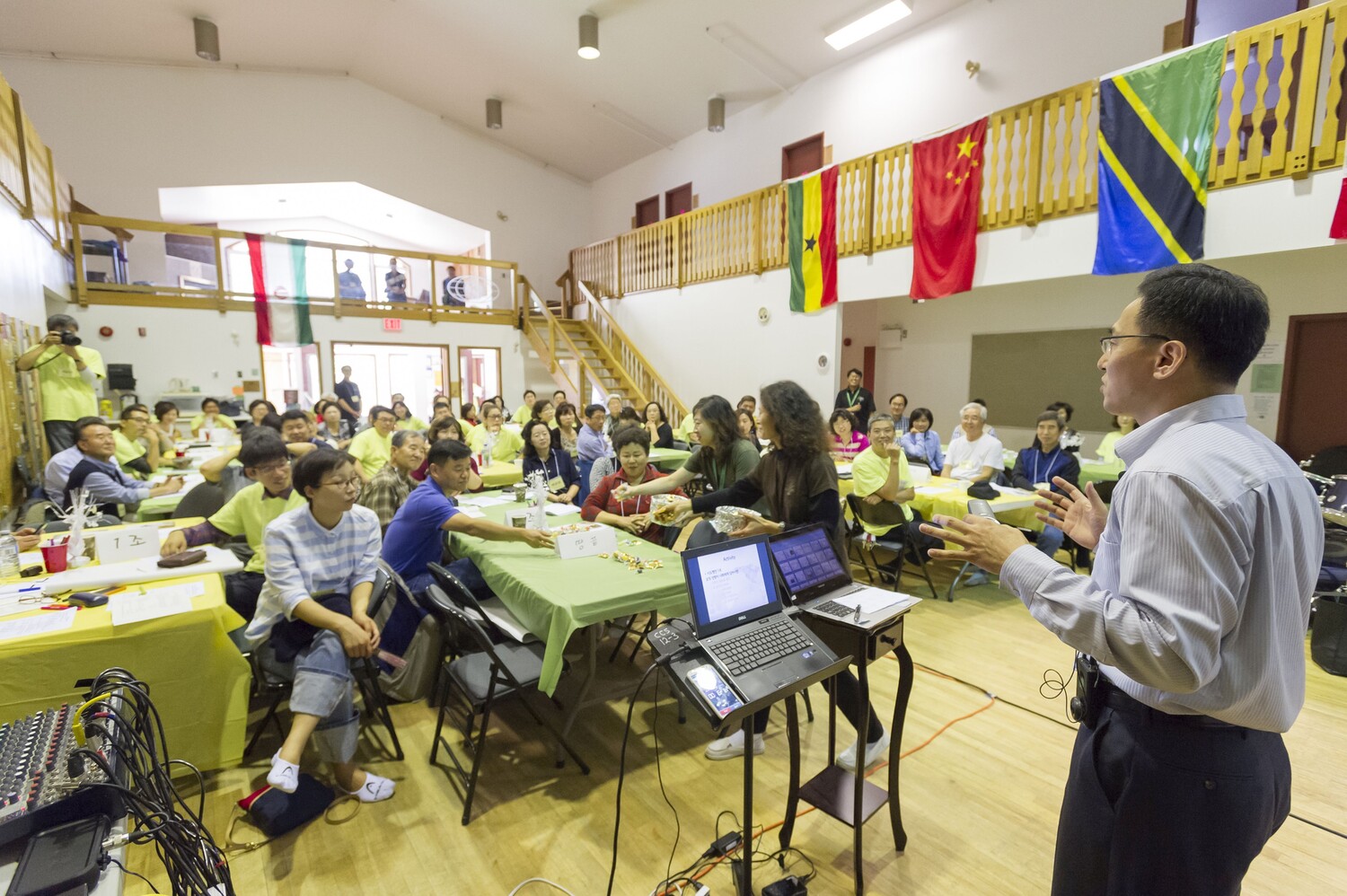Editor’s note: The following article is condensed from a story originally published in the Summer 2014 issue of Word Alive magazine. It includes an update on AIDIA's progress in Bible translation since that time.
In their ancient belief-system, the Quechua people of Peru’s Apurímac (ah-poo-REE-mak) region considered the breathtaking Andes Mountains and other phenomena of nature to be gods. So it makes sense that in the Quechua (KE-chwah) language, the Apurímac River—from which the region takes its name—means something like “the god who speaks.”
Today, another kind of “speaking” is echoing well beyond earshot of the churning Apurímac River in south-central Peru. God’s Word is radiating quietly but effectively from the capital city of Abancay to isolated villages in deep canyons and on steep mountain slopes. These life-changing words are for the high-altitude dwellers of this stunningly majestic area, the Eastern Apurímac Quechua people.
God is speaking through the efforts of AIDIA (pronounced “idea”). That’s the Spanish acronym for a church-based organization known in English as the “Interdenominational Association for the Holistic Development of Apurímac.”
AIDIA is a Wycliffe Canada focus-area partner staffed by pastors, other church leaders and many volunteers from the major Apurímac evangelical denominations. They are translating and promoting use of the entire Bible for at least 200,000 Eastern Apurímac Quechua speakers in churches and communities scattered among the rugged highlands of Peru.
Leading the effort is AIDIA’s director Luis Cervantes, a 40-year-old pastor, husband and father of two.
The Trouble with Normal
“Normal” life is difficult in the rugged Apurímac region. Two-thirds of the people are considered impoverished and basic services, such as clean water and sewage treatment, are rare.
Apurímac’s population has a lower percentage of evangelicals than the national average—for one major reason. Until AIDIA’s work in recent years, there has been a lack of God’s Word and other Christian materials in the people’s heart language, Eastern Apurímac Quechua.
In response, AIDIA is focusing on a half-dozen ministries, including: translating God’s Word, promoting literacy, developing church leadership, producing audio/video Scriptural materials and encouraging children’s Sunday school and camps.
Language Barrier
Spanish may be Peru’s most dominant language, but it is not used much in day-to-day Quechua life, says Cervantes.
“Normal communication in the home is in Quechua.”
About 22 per cent of the Apurímac population have never been to school and are therefore monolingual Quechua speakers. Furthermore, the vast majority of Quechuas simply can’t understand God’s Word well enough in Spanish.
In 2006, six Quechua pastors from the three largest evangelical denominations trained as translators and, headed by Cervantes, began translation of the New Testament into their language. By 2013, the first of 8,000 printed New Testaments in Eastern Apurímac Quechua became available at a dedication ceremony in Abancay.
The Scriptures are now serving as a vital, life-changing tool for believers and pastors alike.
Understandable and Life-changing
Cervantes says God’s Word, coming in accurate, natural and clear Quechua, will only deepen and expand the impact the gospel can have among his needy people.
“When people receive Christ, they stop drinking; [men] stop beating their wives and children. Their children start going to school. And at the same time . . . they start working their fields like they should be.
“You’ll observe that when you enter a community where the majority of the people are Christians. Their fields are green and lush, and their houses are in better condition. It’s an observable difference.”
From Youngsters to Seniors
AIDIA works through evangelical pastors to set up literacy centres in their churches, for Christians and non-Christians alike. AIDIA staff train volunteer teachers to run the classes.
Bible-based materials are used in three levels of classes, with students ranging from three-year-olds to seniors. Quechuas often come to literacy classes with no schooling, including middle-aged women. But many of them are growing in their skills and have become leaders in their churches.
To help older Quechuas learn God’s Word, AIDIA holds orality classes. Teachers use the “Wordless Book,” filled with pictures, to help students memorize Scripture stories in Quechua and then retell them to evangelize others.
Developing Church Leadership
While many Quechua church leaders are passionate about following Christ, unfortunately many in the countryside don’t have much formal training.
“Because they have very little preparation and training,” says Cervantes, “you end up having so many errors entering into their teaching.”
Untrained rural pastors do their best but often teach unbiblical ideas. AIDIA trains these pastors and other Quechua church leaders to use God’s Word in their language, to help build their understanding of basic Christian teaching.
As for the children, many Quechua believers have not seen kids as an important part of a congregation; they associate the church with adults.
In response, AIDIA launched Sunday school and Christian camp programs, recognizing two things: that the Quechua Church’s future is its children, and that childhood is a crucial time to learn about God.
Crucial Partnerships
Teaching resources for all ages are vital. At AIDIA’s translation and training centre, audio and video materials are produced to strengthen individuals, families, small groups and churches.
Despite their progress and successes, AIDIA ministries are stretched to capacity. God’s speaking has not been heard clearly in many, many more isolated Quechua communities.
To achieve AIDIA’s strategic goals, translator/pastor Felipe Valenzuela says it is crucial for Canadian believers, through Wycliffe Canada, to stand with AIDIA.
“We are very thankful for the help we’ve gotten from them,” he says. “With their prayers and with their offerings, they [Canadian Christians] are walking with us.
“That’s what it is to do missions.”
Update:
Since completing the New Testament in 2013, AIDIA has focused on translating the Old Testament. While the coronavirus pandemic has presented many challenges for translators, they are persevering in translation and hope to complete translation of the full Eastern Apurímac Quechua Bible this summer.
Project link: AIDIA
VIDEO: Walking Together
